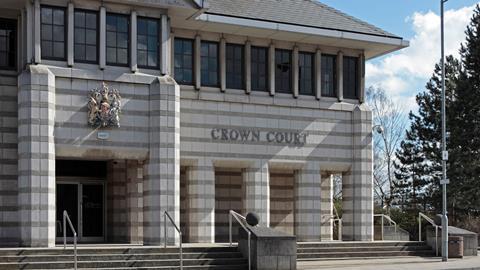The Crown court backlog has increased for a third consecutive month, according to figures published by HM Courts & Tribunals Service – and will only get worse if criminal barristers decide to go on a full-blown strike over legal aid funding next month.
This time last year the backlog stood at 60,162. Aside from a small rise after Christmas, it was steadily falling until April. Progress is likely to have been halted by the decision of hundreds of barristers to adopt a policy of ‘no returns’, withdrawing a longstanding goodwill gesture in which they covered cases returned due to a diary clash caused by a rescheduled hearing.
In April, the backlog stood at 58,540, up from 57,856 the previous month. It climbed to 58,750 in May, reaching 58,973 in June, when criminal barristers escalated their action – staging a two-day court walkout towards the end of the month and refusing to accept new instructions as well as returned cases.
The backlog is likely to have got worse in July, when court walkouts increased by a day each week. The Criminal Bar Association is currently balloting members on whether to maintain the current action – alternating weeks of strikes, no new instructions and no returns – or escalate it to an ‘uninterrupted’ strike that would begin on 5 September, the day the new prime minister is expected to be in post.
On the day the latest Crown court figure was published, justice secretary Dominic Raab tweeted that the government’s action on rape ‘is working’, telling his 350,000 followers that police referrals are up 37%, CPS charges are up 31% and Crown court receipts are up 35%.
The figures Raab quoted cover October-December 2021 and were taken from the criminal justice system delivery data dashboard, previously called ‘scorecards’.
Raab failed to mention that the percentage of prosecutions stopped post-charge because a victim did not provide evidence or had withdrawn has steadily gone up since 2019, when it was 10%, to 15% by the end of last year, before jumping to 21% for January-March 2022.
The Ministry of Justice told the Gazette that the open caseload in the Crown court has fallen by 3% since April 2021 and a case may be open for many reasons. For instance, the prosecution and defence are still preparing for trial, or the trial has been rescheduled to enable a defendant or witness to attend.
The department also pointed out that the open criminal caseload in the magistrates' court has fallen by 10% over the 2021-22 financial year.
A spokesperson said: 'These stats show that our court recovery measures are working - something that the CBA is putting at risk by its harmful strike action.
'This recovery is underpinned by our half-a-billion-pounds plan to speed up access to justice - including removing the limit on Crown Court sitting days, opening two new super courtrooms and keeping an extra 30 Nightingale courtrooms open for longer.'
The government estimates that it will get the backlog down to 53,000 by March 2025.
Law Society president I. Stephanie Boyce said: 'To make a significant dent in the backlog, sustained investment is needed to ensure there are enough judges, prosecutors and defence lawyers to cover the mountain of cases.
'Firstly, the UK government should commit to the bare minimum 15% increase in criminal legal aid rates for criminal defence solicitors as recommended by Lord Bellamy.'




























4 Readers' comments